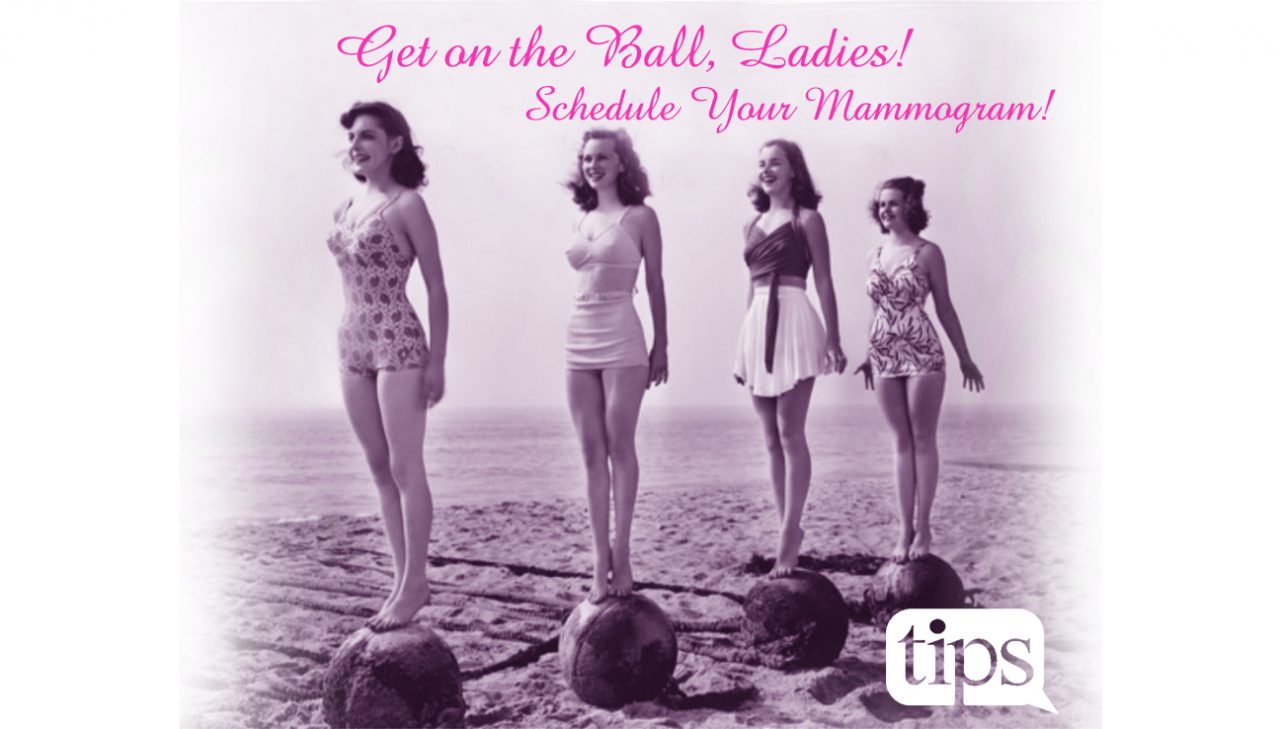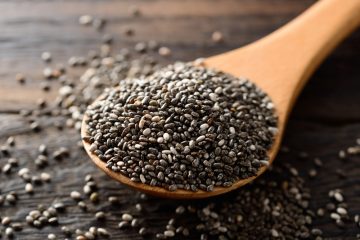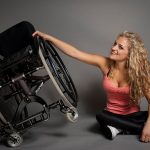Get on the Ball: Schedule Your Mammogram
 Breast cancer is the most common cancer among American women, except for skin cancers. Regular screenings for breast cancer are so important because it’s been shown time and time again that regular screening for breast cancer with a mammogram and a breast self-exam reduces the risk of dying from breast cancer by catching the cancer early, when it is more easily and successfully treated.
Breast cancer is the most common cancer among American women, except for skin cancers. Regular screenings for breast cancer are so important because it’s been shown time and time again that regular screening for breast cancer with a mammogram and a breast self-exam reduces the risk of dying from breast cancer by catching the cancer early, when it is more easily and successfully treated.
Although there has been some discussion in recent years as to how often a woman should have a mammogram, the American Cancer Society and most medical associations now agree that a woman should have her first, or baseline, mammogram between ages 35 and 40.
Here are a few other important facts about breast cancer statistics, mammograms and breast cancer screenings:
- After age 40, a woman should have a yearly clinical breast exam and a mammogram as long as they are in good health. She should also perform monthly breast self-examinations. Women ages 20 to 39 with no risk factors for breast cancer should have a clinical breast exam performed every three years.
- A mammogram is a low-dose X-ray exam of the breast used to detect and evaluate changes in the breast, such as calcification, masses, and distortion. Women who undergo mammograms at The Valley Hospital Breast Center have the latest generation of diagnostic technology available to them—including digital mammography, 3-D mammography and breast MRI. Digital mammography allows high-resolution images of the breast to be viewed by radiologists, a significant improvement over the limitations of conventional X-ray film. 3-D breast tomosynthesis for breast cancer detection, also known as 3-D mammography, has the potential to improve cancer detection and reduce false-positive findings by providing physicians a clearer look through the overlapping structures of breast tissue.
- Breast self-exam is an option for women starting in their 20s. Women should report any breast changes to their health professional right away.
- Women who are at high risk for breast cancer should be considered for additional imaging, such as the combination of yearly MRI and mammography. Women at high risk should consult with their doctors about the best age at which to begin screening for breast cancer, based on their personal medical history.
- Risk factors include a previous history of breast cancer, a mother or sister who had breast cancer or a precancerous breast condition. Learn more about Valley’s Cancer Genetics Program.
- Women can reduce their risk for breast cancer by maintaining a healthy weight, exercising regularly, employing stress reduction techniques and eating a diet low in animal fat diet. Understanding the family history for cancers and being proactive for early detection and possible surgical risk reduction are important aspects as well.
Learn more about The Valley Hospital Breast Center.
Originally posted on October 1, 2015 by Dr. Laura Klein, breast surgeon and Medical Director of The Valley Hospital Breast Center
What is Perimenopause and Why Does it Last 10 Years!?
Maple Pecan Quinoa Breakfast Bowl
A Tiny Little Seed That Packs a Big Punch of Nutrition.

What’s so Great About Kale?
It Can Provide 900% of your RDA of Vitamin K and More!

Healthy Sweets: Dark Chocolate Almond Butter Truffles with Quinoa
Want to Try Kale? You’ll LOVE Our Chicken & Kale Casserole
Here’s an Easy Prep, Easy Clean-up Meal-in-One-Skillet:
Mediterranean Chicken with Spinach

Biryani: an all-in-one Indian dish.

One bite will transport you to a place just shy of heaven:
Chocolate Chip Cookie and Oreo Fudge Brownie


























